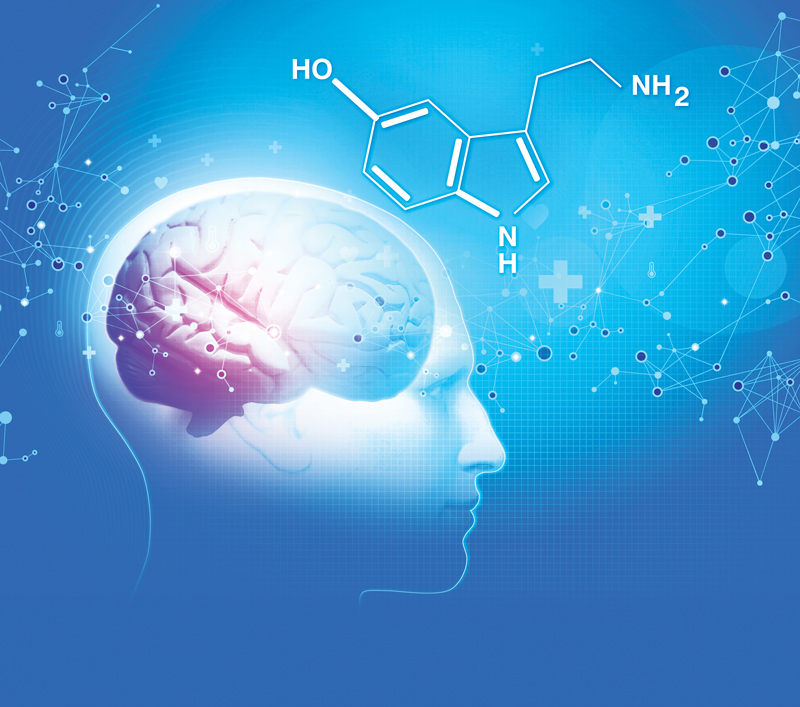Serotonin the happy hormone
It improves mood and prevents depression
The feeling of happiness, satisfaction and mood stability are signs of stable serotonin levels, a hormone that is also classified as a neurotransmitter, which sends or transmits nerve impulses to the brain. Serotonin plays a major role in mood disorders, especially depression. When the balance of neurotransmitters, specifically serotonin, is altered, it will affect mood. The lower the level of serotonin in the brain, the greater the risk is for developing a depressive disorder.
Serotonin is necessary for the regulation of many functions within the body, and when you do not have enough of it you can develop serotonin deficiency syndrome, which brings with it several symptoms. Symptoms of low serotonin levels include depression, insomnia, anxiety, negative thinking, obesity, pain and migraine headaches.
Symptoms of normal serotonin level in the brain include:
- Mood stability
- Feeling happy and satisfied
- Prevention of headaches
- Anxiety control
- Prevention of premenstrual syndrome
- Regular and comfortable sleep
- Healthy sex drive
Serotonin is mainly found in the brain, nervous system and blood platelets in addition to the digestive system. It is a neurotransmitter involved in the transmission of nerve impulses. Serotonin is considered a natural mood stabilizer. It is the chemical that helps with sleeping, eating, digesting and helps control your bowel movements and function. Generally, the normal range for serotonin levels in your blood is 101–283 nanograms per milliliter (ng/mL), and may vary slightly depending on the measurements and samples that have been tested. Causes of low serotonin include nutritional deficiencies, poor diet, hormone imbalances, inadequate sunlight, lack of exercise, stress, digestive problems, infections, inflammation, blood sugar imbalances, excessive caffeine consumption, smoking and alcohol use. Although there are chemical ways to boost serotonin levels in the body, there are also many natural ways to do so.
There are some ways that contribute to the increase of serotonin, namely:
- Exposure to sunlight for at least 20-30 minutes every morning or afternoon
- Exercise regularly to help produce serotonin
- Indulge in relaxation, meditation and remembering happy memories, which will help produce serotonin
- Take vitamin B, B6, B12 and vitamin C; evidence has shown the ability of vitamin supplements to treat depression and increase happiness
- Reduce sugar consumption because it lowers serotonin level in the body, thus leads to bad mood
- The following foods could also boost your serotonin:
- Some fruits such as pineapples, bananas and kiwis.
- Nuts including walnuts, pistachios and almonds.
- Magnesium-rich foods such as dark leafy vegetables, fish, beans and bananas, help to treat depression and achieve happiness.
- Protein-rich foods such as chicken, liver and meat.
- Colored veggies such as carrots, okra, spinach and pumpkin.
- Fish, especially fatty fish such as salmon, fish oil and foods high in omega-3 protein, contain high levels of serotonin.
- Dark chocolate boosts serotonin.
- Carbohydrates-rich foods because they stimulate the secretion of serotonin.
- Eggs increase serotonin because they are rich in omega-3 fats.
- Whey Protein improves blood sugar levels, strengthens the body immunity and increases the levels of serotonin.
- Bran, flaxseed, and flaxseed oil improve the mood and boost serotonin level in the body.


















One Comment